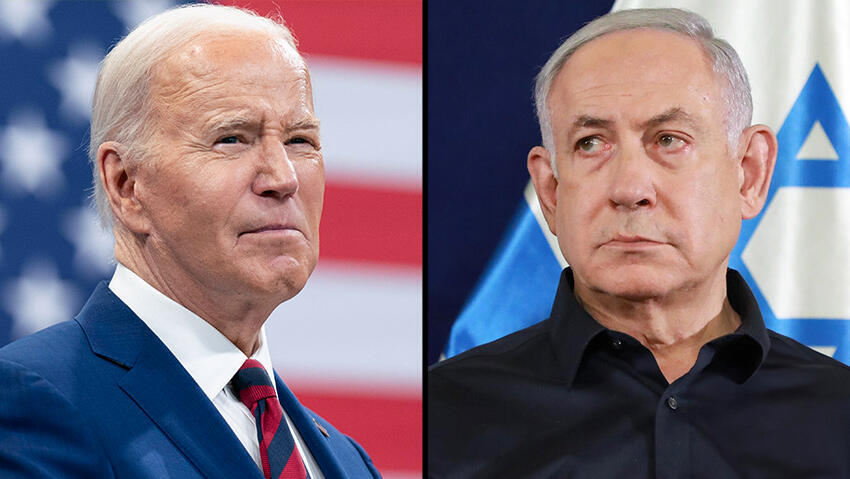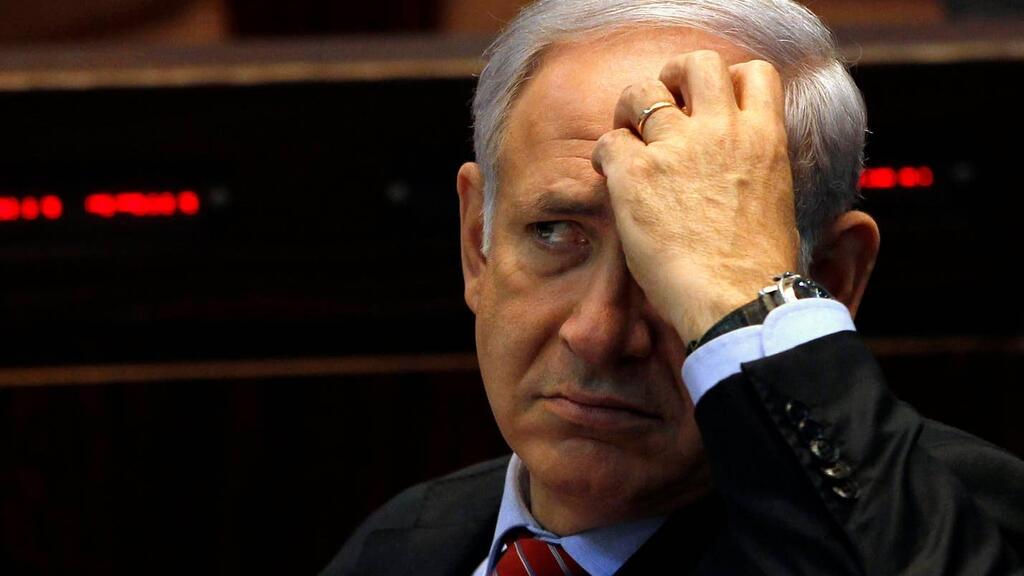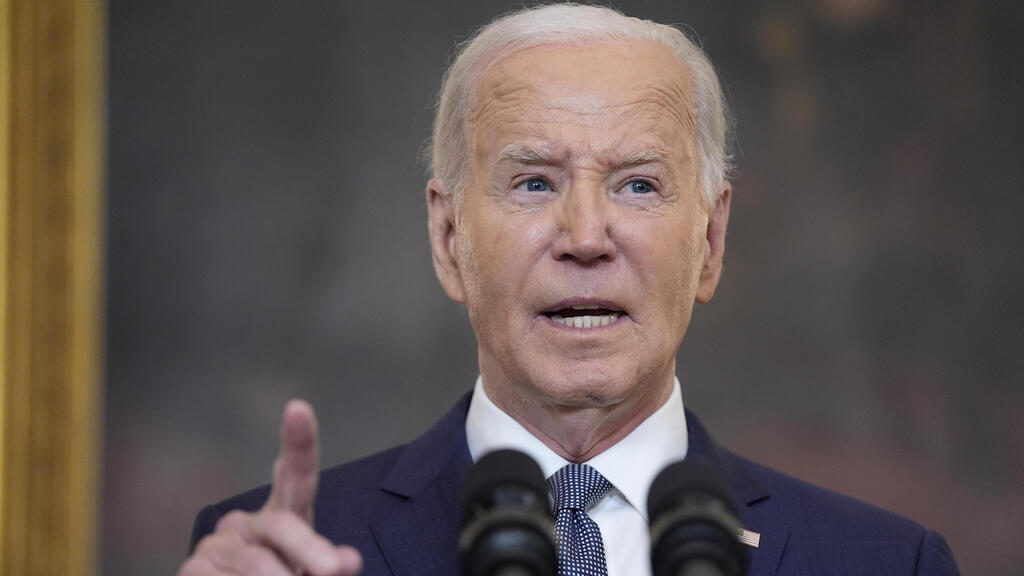Israel’s War Cabinet convened on Sunday to discuss the negotiations for a hostage deal with Hamas, which have reached a critical point and could be the last opportunity to secure a deal. All parties understand the current Israeli offer, which U.S. President Joe Biden revealed last week, is the most generous proposal ever made to Hamas and closely aligns with their demands.
Both Israel and the U.S. now say the ball is in Hamas' court, and everything depends on the decision of its leader, Yahya Sinwar. For now, Israeli officials are cautious about predicting the Hamas response, estimating it won’t reject the offer outright but will likely try to push for additional concessions.
3 View gallery


U.S. President Joe Binde, Prime Minister Benjamin Netanyahu
(Photo: AP/Stephanie Scarbrough, Dana Kopel)
If Hamas responds positively to the offer, the Israeli negotiation team will travel to Doha or Cairo to discuss more details on the deal, many of which are still up in the air. However, Israel understands these details are minor and not central to the agreement.
Senior officials close to U.S. President Biden said, "Sinwar needs to decide what to do and what’s right for him. He thinks they’re winning, but he’ll have to conclude this is the best deal he’ll get." They added that the deal Biden presented was a framework agreed upon by Israel. "We aren’t freelancers here; the president didn’t say anything that wasn’t previously agreed upon with the Israelis," one official said.
Israel has made exceptional concessions in the new proposal, including continuing negotiations after the deal’s first phase without resuming fighting. However, beyond the uncertainty surrounding Sinwar, there is some regarding Netanyahu, who might still backtrack on the deal.
Those close to the prime minister believe the chances of Hamas accepting the deal are slim. They also think that ministers Itamar Ben-Gvir and Bezalel Smotrich won’t follow through on their threats to dismantle the government if the first phase of the deal is approved.
The second phase is different, and Netanyahu is aware that its final approval and execution could likely mean the end of his government. Although Opposition Leader Yair Lapid has promised to support passing the deal, he isn’t expected to help Netanyahu stay in power afterward, and neither is Minister Benny Gantz.
Biden's associates believe that, contrary to the threats by Ben-Gvir and Smotrich, Netanyahu’s government may not necessarily collapse if a deal is made with Hamas. They claim that Gantz thinks otherwise and believes it could indeed bring down the government. "But Netanyahu is smart," say those close to the American president. "He knows that the far-right has nowhere to go. This threat is much weaker in reality."
Some in Israel speculate Netanyahu's agreement to a deal with Hamas could signify a shift to the left, since the deal is expected to create a domino effect leading to a diplomatic settlement on the northern border, the return of Israeli residents to their homes, normalization with Saudi Arabia, and a regional defense alliance, alongside a willingness to commit to a political horizon and a two-state solution with the Palestinians.
This path might also reflect an understanding that, by the end, Netanyahu will head to elections with a series of achievements, primarily the normalization with Saudi Arabia and the return of the hostages. Behind the scenes, Biden's envoy to Lebanon, Amos Hochstein, is considering traveling to Beirut to advance a settlement that would restore peace in the north.
Currently, the Biden administration wants to push the process forward, but senior officials close to the president admit that success isn’t guaranteed. "We’re realists," an official said. "Hamas needs to calculate what they gain from this. The question is when they’ll say it's enough. The problem is that Hamas doesn’t really care about the lives of Palestinians."
U.S. National Security Council Communications Advisor John Kirby said on Sunday that, if Hamas agrees to the deal, "the U.S. expects Israel would say yes." In an interview with ABC, Kirby called it an Israeli proposal. "We have every expectation that if Hamas agrees to the proposal, as was transmitted to them as an Israeli proposal, that Israel would say yes," he said.
Meanwhile, many at the Hostages and Missing Families Forum are pressuring Netanyahu to agree to the proposal, calling it the "Netanyahu Deal" – a hint at who’s behind it and is expected to support it after Hamas responds.
Family members of the hostages demanded the deal be accepted. "We mustn’t lose this moment and this opportunity," they said. "The hostages are running out of time. We win only when everyone returns."





